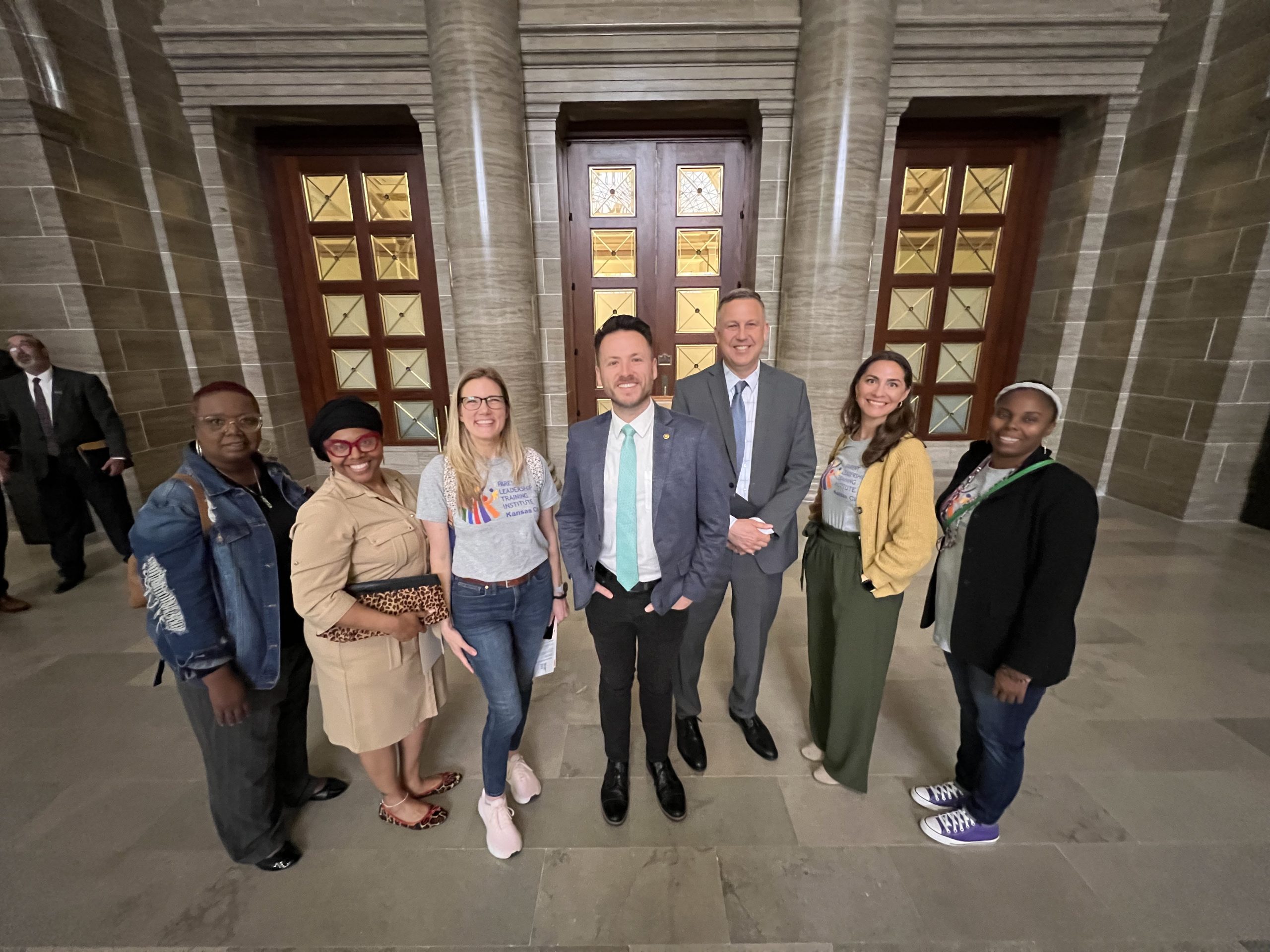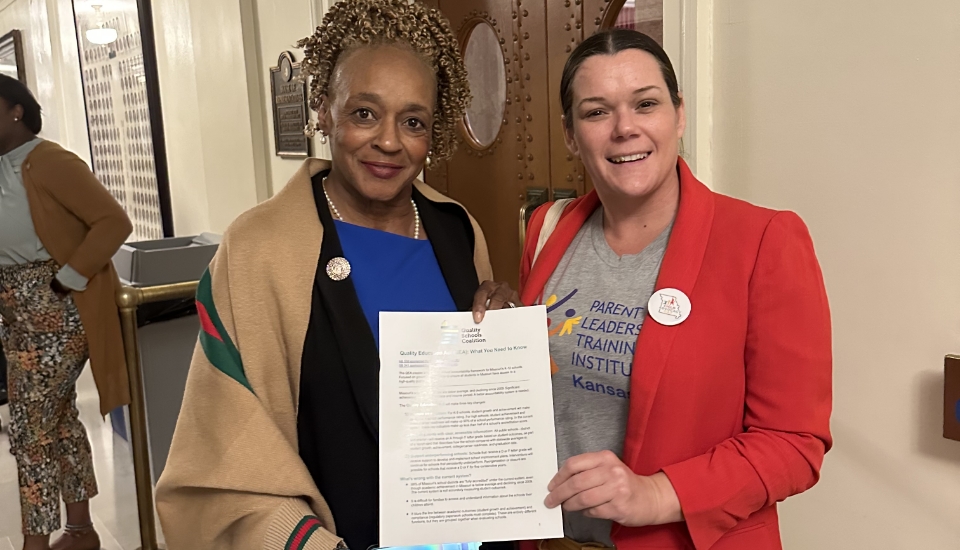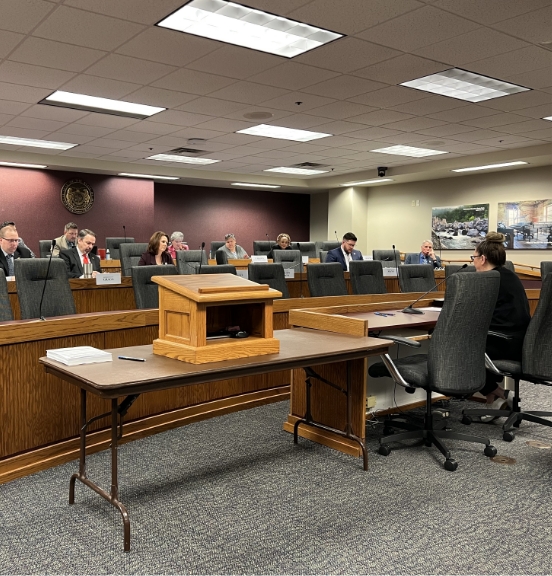Advocating for Positive Changes in Education Policy
Quality Schools Coalition is committed to creating an education policy environment in which all public schools flourish. Towards this end, the QSC board of directors adopted the following strategic objectives:

Tier One Priorities
- Accountability: Missouri passes legislation that revises its K-12 public school accountability system to include these pillars: 1) Performance ratings for K-8 schools are based 90% on student growth and achievement, and high school performance ratings are based 90% on college/career readiness, student growth, and achievement, and 2) Information about school performance is clear and easily accessible online for parents and other education stakeholders.
- Fair and Adequate Funding: Missouri revises the K-12 public school foundation formula to ensure that Missouri is a Top 20 state for 1) Overall per-pupil public school funding, 2) Average teacher pay, and 3) Supplemental funding for low-income students.
- Public School Choice: Missouri passes legislation that allows public school open enrollment, and Missouri expands charter schools to more communities throughout our state.
Tier Two Priorities
- Differentiated Teacher Pay: Schools have the flexibility to adopt differentiated teacher pay schedules.
- Alternative Teacher Certification: Schools have the flexibility to hire teachers through alternative pathways to teacher certification.
- Competency Based Learning: Missouri adopts a framework for competency- based learning that creates flexibilities for teacher certification and student seat time, provides adequate funding and measures outcomes.
- Market Value Assets: Missouri adopts a framework for high school students to earn Market Value Assets (college credits, industry-recognized credentials and professional internships) that includes flexibilities for teacher certification and student seat time, provides adequate funding and measures outcomes.
- Charter School Access to Vacant District Buildings: Charter schools have right of first refusal to vacant district buildings.
- Supplemental Funding to Raise Student Achievement: Schools may establish supplemental learning programs for students who are performing at the Basic or Below Basic level in core subjects and receive adequate funding through the foundation formula.
Wondering how to find information on your local Missouri legislators? Follow the links below.
Legislative Work

Quality Education Act
All Missouri students deserve access to a world-class education. Although Missouri has a system to measure school success, it is not working. In the current system, 99% of Missouri’s school districts are “Fully Accredited,” yet Missouri’s student achievement levels are below the national average. The Quality Education Act would ensure that Missouri measures what matters, provides clear information for families, and provides support and interventions to struggling schools.
Charter School Funding Equity
Charter school students in St. Louis and Kansas City were receiving 20-30% less funding for their education than their peers in traditional public schools. This discrepancy resulted from a state law that tied a significant portion of charter school funding to 2005 tax receipts, which were then frozen in time. Meanwhile, traditional public schools were funded by annual property tax collections that naturally increased over time. The four-year effort to "fix the glitch" was complete when Governor Parson signed House Bill 1552 into law on June 29, 2022. The new law adds approximately $75 million dollars annually to urban education in St. Louis and Kansas City and ensures that charter public school students and traditional public school students are funded equitably.


2022 Education Omnibus (SB681)
Senate Bill 681 was an education omnibus bill that advanced many improvements to elementary and secondary education. Key provisions from the legislation include developing a plan to establish a comprehensive reading intervention program, teacher recruitment and retention measures, and support for schools offering competency-based education. Governor Parson signed SB681 into law in June 2022.
Pre-K Expansion
Research has shown that human brains are significantly developed by the age of 5 when children typically begin Kindergarten. Money from the state, local and federal government can help expand Pre-K programs so more children can have a strong start to their education.
In 2023, Missouri Governor Mike Parson approved an $82 million increase in funding for Pre-K and childcare subsidy programs. This increase was the largest in the state’s history and is a significant step towards ensuring every child in Missouri has access to quality care and education.
In 2024, Governor Parson signed Senate Bill 727, which doubles the number of publicly funded preschool seats available to lower-income families, offering a crucial opportunity to enhance early childhood education statewide. Students enrolled in preschool are 14% more likely to graduate from high school and 10% less likely to be placed in a special education program. This opportunity should be available to all Missouri families regardless of personal income.


Increased Teacher Pay, Retention, and Recruitment
Senate Bill 727, signed into law in 2024, raises the minimum teacher salary from $25,000 to $40,000 and provides funding support to help schools achieve this target. It also adjusts pay scales for experienced teachers with advanced degrees and will adjust with inflation going forward. Additionally, the adoption of differentiated teacher pay policies recognizes the need to incentivize teachers to fill positions in hard-to-staff subjects or schools, promoting equity and excellence in education.
Great teachers are the backbone of every great school. To ensure that all children in Missouri have access to a high-quality education, we must recruit and retain outstanding teachers for our classrooms. Honoring teachers with compensation that recognizes their critical role in our communities is a priority.
Currently, average teacher pay in Missouri ranks 46th among all states and Washington, D.C. Senate Bill 727 moves us in the right direction but much more work is needed.
Open Enrollment
Several bills have been filed in recent years that would allow students to attend a public school outside their home district, if space is available. Importantly, the legislation has included transportation funding, to ensure that open enrollment is accessible to students regardless of parents' means to transport their children. QSC has testified in support of Open Enrollment.
We understand that the traditional neighborhood public school will be a great option for many families and students. However, it won’t always be the best option for all students. Therefore, an optimal public education ecosystem should have several high-quality school options for parents to choose from.


Increasing the State Adequacy Target (SAT)
In September 2023, the Department of Elementary and Secondary Education (DESE) proposed an increase to the SAT for the first time in five years. The SAT is a formula that determines statewide funding based on per pupil expenditures in the highest performing school districts.
DESE requested and received an increase of $120 million for the 2024-25 school year. DESE is requesting an additional $300 million for the 2025-26 school year. QSC supports more funding for our classrooms. According to 2022 U.S. Census Bureau data, the average per pupil expenditure in Missouri is $12,600, which ranks 37th nationally. The U.S. average is $15,600.
When fully implemented, Senate Bill 727 will also increase the state adequacy target by $227 million by revising the calculation that determines funding for each school district. The new calculation brings Missouri in line with other states and is more equitable for higher poverty school districts.
Charter School Expansion
Charter schools in Missouri currently serve students who live within the Kansas City, St. Louis, and Normandy public school districts. Restrictions within state law limit opportunities for charter schools to serve a broader group of students and families. QSC supports legislation that would expand charter school eligibility to more communities throughout Missouri.
The Center for Research on Education Outcomes (CREDO) at Stanford University recently published As a Matter of Fact: The National Charter School Study III 2023 which found that charter school students in Missouri received the equivalent of 56 additional days of learning in math and 39 additional days of learning in reading compared to their traditional public school peers. In this study, Missouri’s charter school sector ranked among the top five states nationally.
Senate Bill 727 expands charter school opportunities in Boone County and represents a significant step towards increasing public school choice and innovation.

